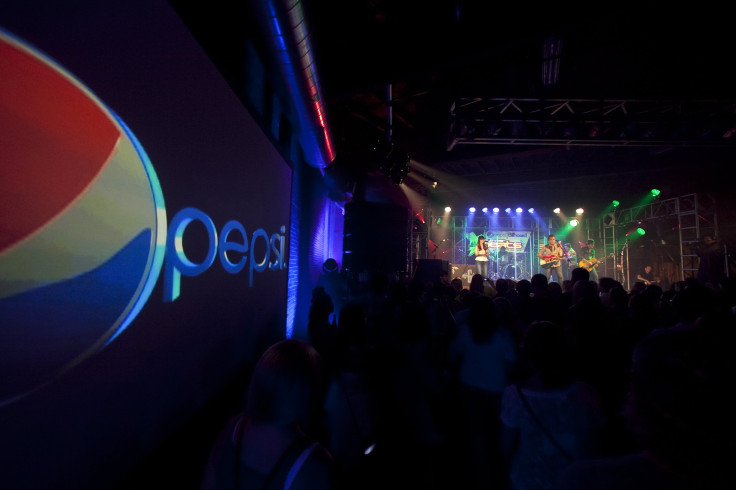Famous Singers Almost Always Endorse Unhealthy Food And Beverage Products; How It Affects Youth

In the last 30 years, childhood obesity rates have more than doubled in children and quadrupled in teens — and the numbers are only climbing. One of the reasons may be from the powerful influence of music celebrities who are paid to endorse unhealthy food and beverage products, according to a team of researchers from NYU Langone Medical Center. Their study, published in the journal Pediatrics, found soda, fast food, and sweets are the most commonly advertised items, while none of the stars endorsed fruit, vegetables, or whole grains.
"Because of our nation's childhood and teenage obesity public health crises, it is important to raise awareness about how companies are using celebrities popular with these audiences to market their unhealthy products," said the study’s lead author Dr. Marie Bragg, who is a professor at the NYU College of Global Public Health, in a statement. "Research has already shown that food advertising leads to overeating, and the food industry spends $1.8 billion per year marketing to youth alone.”
For the study, researchers analyzed dozens of television, magazine, and radio advertisements released between the years 2000 and 2014, including endorsements on YouTube and other media sources like a food or beverage-sponsored concert. Of the 163 celebrity-endorsed ads, 65 of them were identified with 57 different food and beverage brands.
Researchers evaluated how healthy each item using the Nutrient Profile Model, a tool commonly used to measure the nutritional content of certain foods and drinks. Not only were 81 percent of endorsements considered nutrient poor, but also 71 percent of the drinks were full of sugar, including popular high-calorie sodas. Meanwhile, celebrities advertised water beverages only three times and only once did a celebrity endorse a natural food: pistachio nuts.
"The popularity of music celebrities among adolescents makes them uniquely poised to serve as positive role models," said the study’s co-author Alysa N. Miller, MPH, a research coordinator in the department of population health, in a statement. "Celebrities should be aware that their endorsements could exacerbate society's struggle with obesity — and they should endorse healthy products instead.”
This isn’t the first time researchers have made this connection. In 2013, a study conducted at Yale University revealed professional athletes were a promising tool in the food and beverage advertising business: Out of 46 beverage endorsements, 93 percent of the drinks’ calories came from added sugar. That same year another study found children ate more potato chips after seeing advertisements featuring a popular sports figure compared to those who watched commercials for toys and nuts.
According to the American Psychological Association, the food and beverage industry spends $12 billion a year on advertising that targets youth — a wise investment considering the demonstrated influence celebrity advertisements have on children and teens. Children view more than 40,000 commercials every year, with smartphones and websites like YouTube, where roughly 313 million views are of food and beverage products endorsed by celebrities, present advertisers with new opportunities.
"These celebrity endorsement deals are often worth millions of dollars each, suggesting companies find them critical for promoting products," Bragg said. "Given the heavy targeting of adolescents and the amount of money they spend on foods and beverages, voluntary food marketing reduction pledges should expand to include teens.”
Source: Bragg M, Miller AN, Elbe B, Elizee J, and Dighe S. Pediatrics. 2016.



























